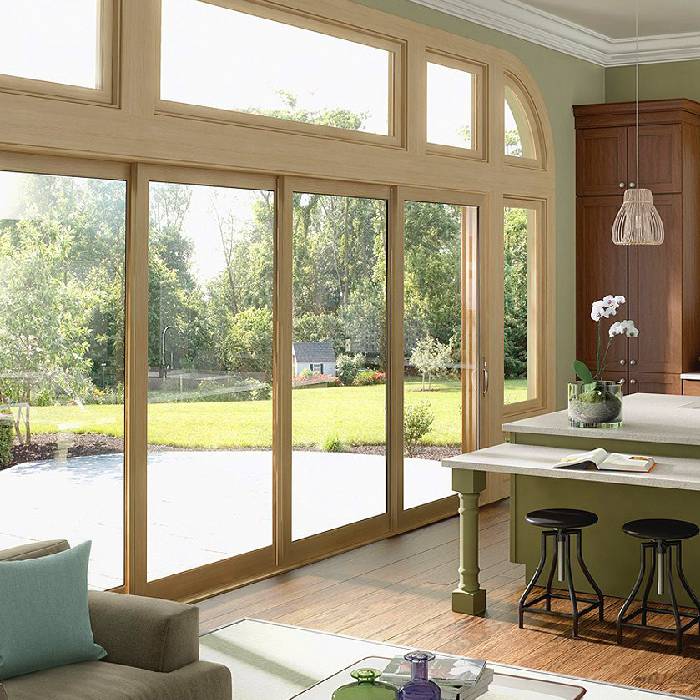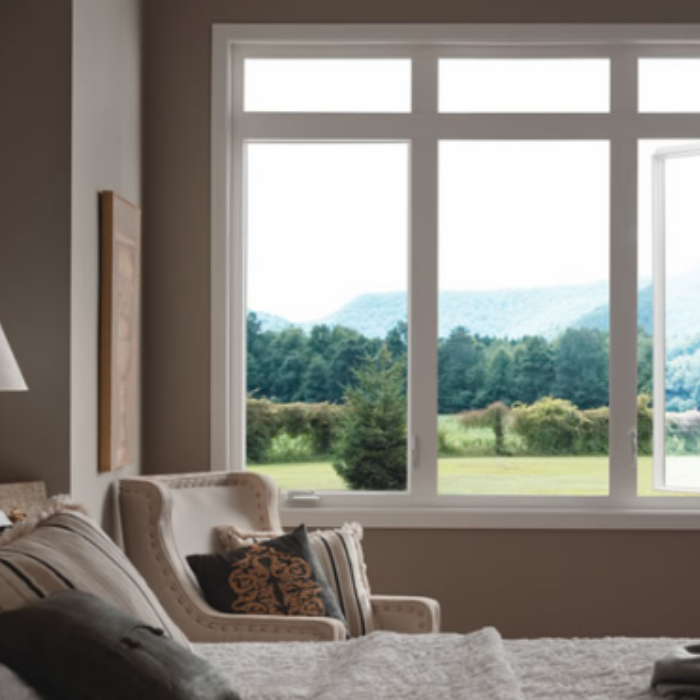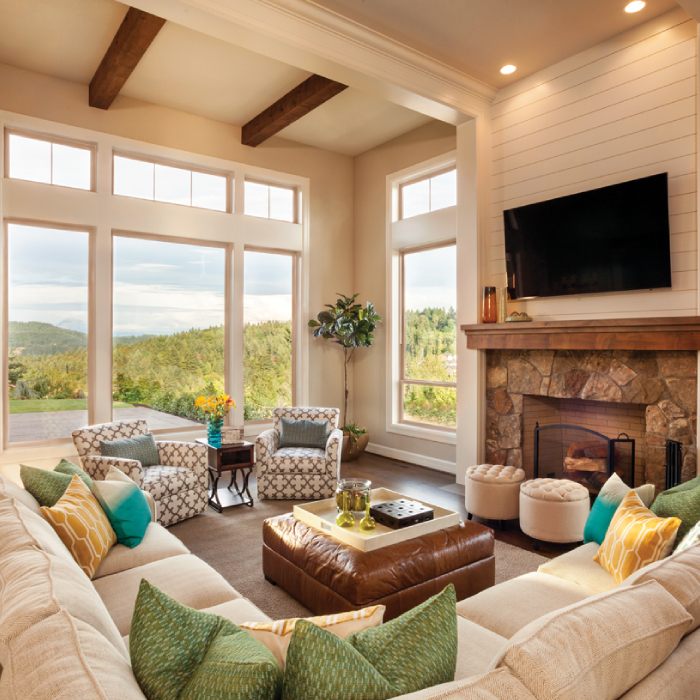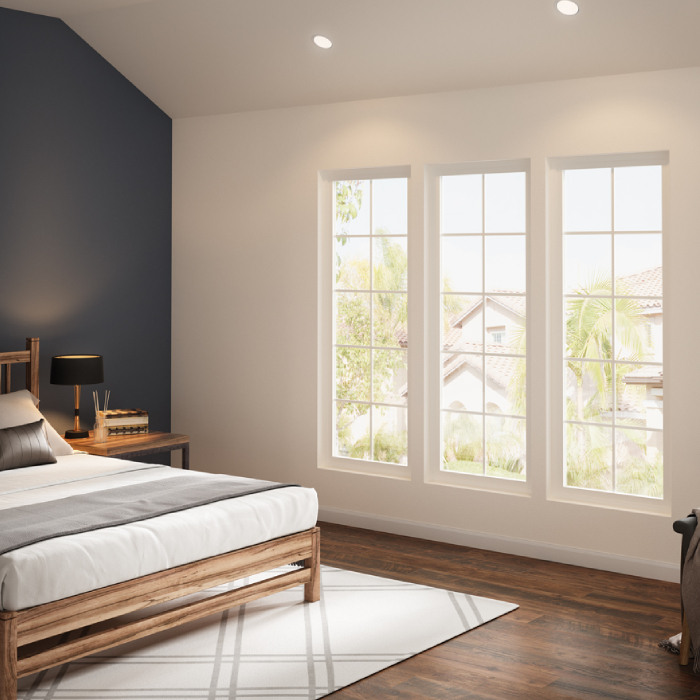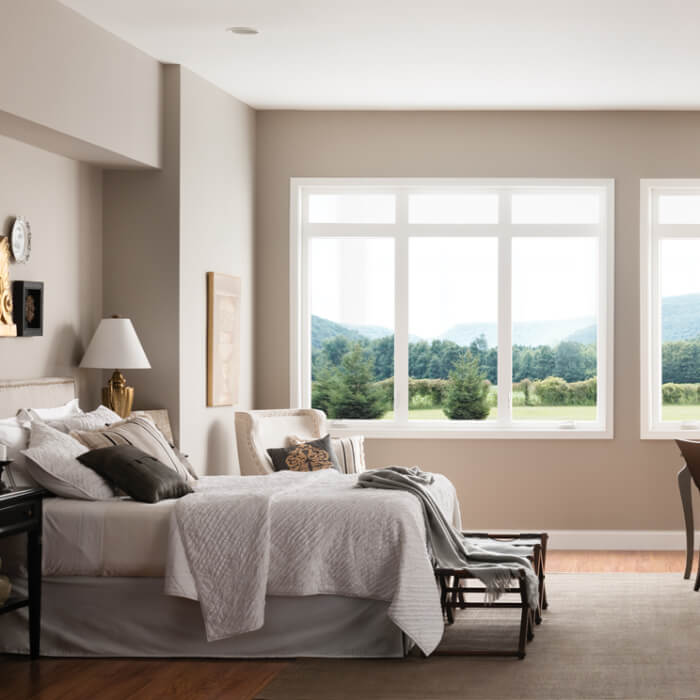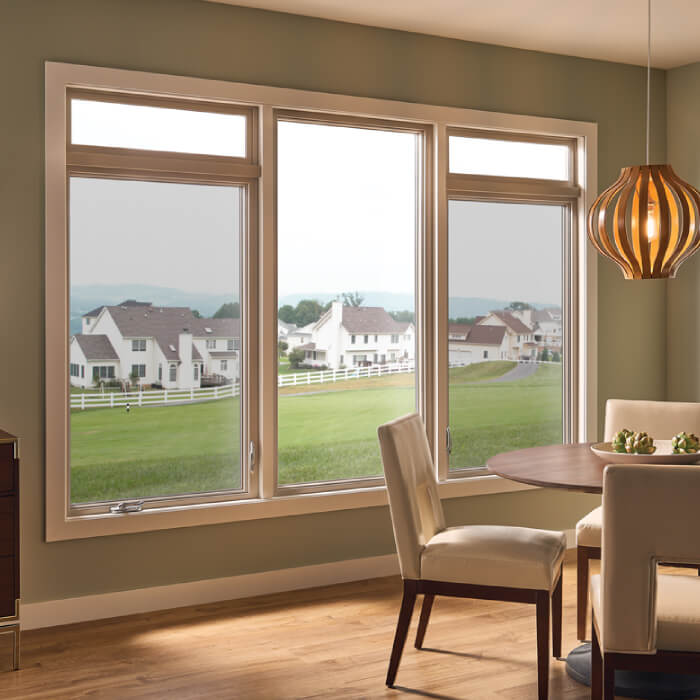Choosing just the right window for your home and lifestyle can be quite overwhelming. There are so many things that need to be considered. Style, comfort, efficiency, and quality of materials all play a strong role in customer satisfaction.
Important details such as window type, the amount of sunlight that filters through the window, and double- or single-pane glass can make a difference in your energy costs and the appearance and comfort of your home.
Single-Pane or Double Pane Windows?
If you’re confused about the difference between single-pane windows and double-pane windows, the following guide can help you make the wisest choice for your family.
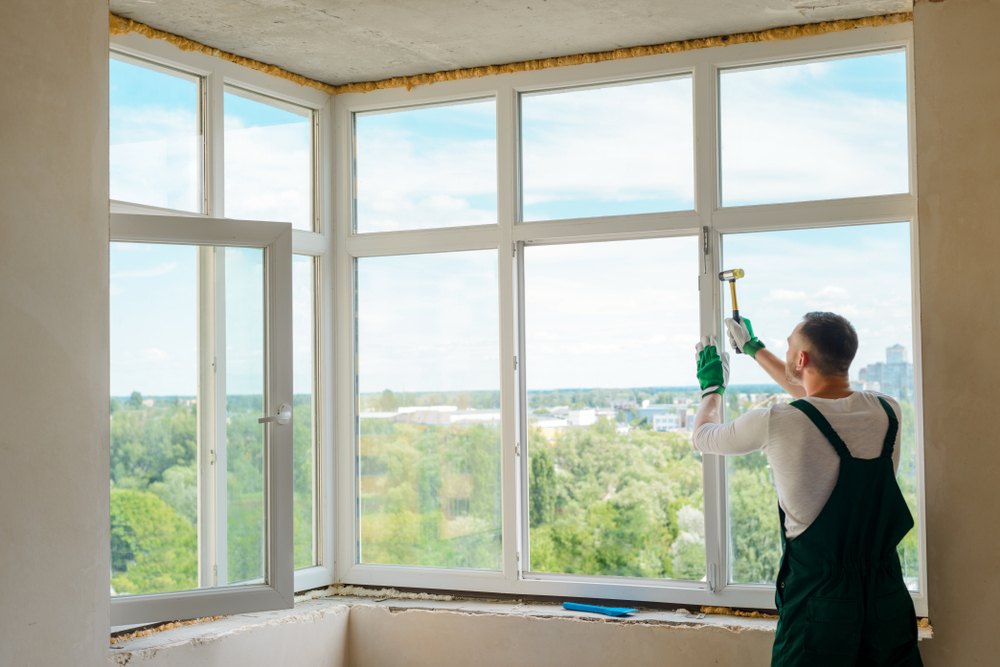
Single-pane windows
Single-pane windows are made with a single layer of glass. They come in all of the same styles and materials that double-pane windows do, but they are not as efficient at keeping out noise or seasonal temperatures. Their initial cost is less, which makes them a good choice for those who need to stay within a strict budget, but over time, energy bills will be higher.
Single-pane glass treatments have no insulation. When you have only one pane of glass, outside temperatures and noise will affect the inside of your home more easily. If you live in a quiet neighborhood and your seasonal temperatures remain mild and consistent throughout the year, single-pane windows might be enough. However, the costs of heating or cooling down your home are directly related to the type of window you choose.
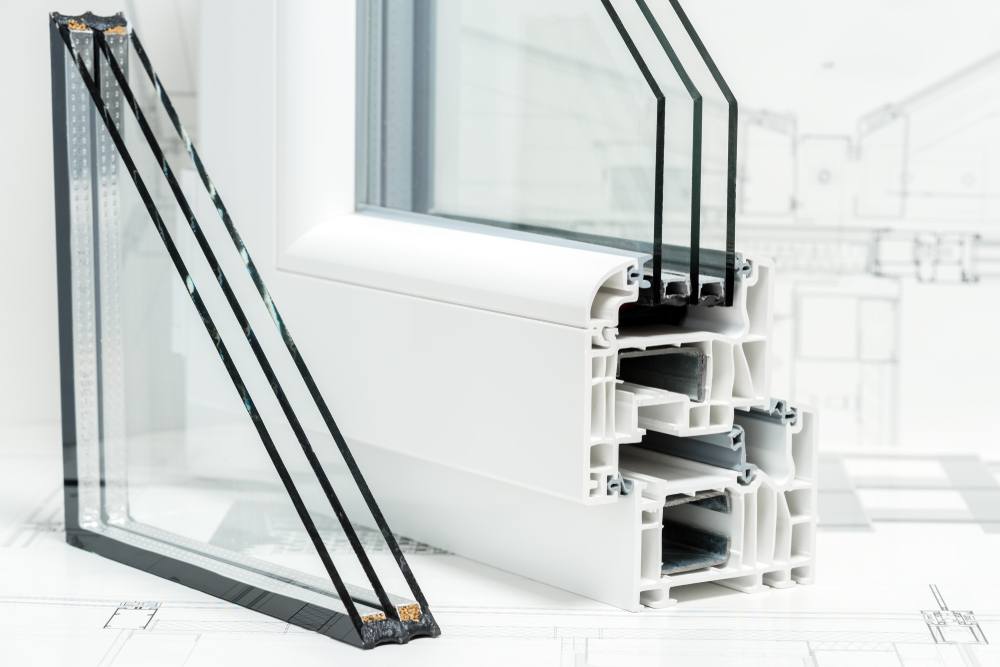
Can you still buy single-pane windows?
Although this is an older window style, you can still buy single-pane windows. In fact, there are some installations where it’s the preferred window type.
Typically, if someone chooses a single-pain window, they are motivated almost entirely by cost. Because they’re cheaper to install and purchase, this is a great option for someone looking to restore and flip a home or a remodeler on a budget – especially when the home is in a mild climate.
YOU MAY ALSO ENJOY: Single Pane Windows – Why, What, Where & More
Can you insulate a single-pane window?
If you need to install single-pane windows, or if you already have them and can’t yet replace them, you can insulate them with window film. This is a short-term solution that can provide an extra layer of insulation on any window. A single-pane window with window film won’t match the insulation of a double-pane window, but it’s better than a naked single-pane window.
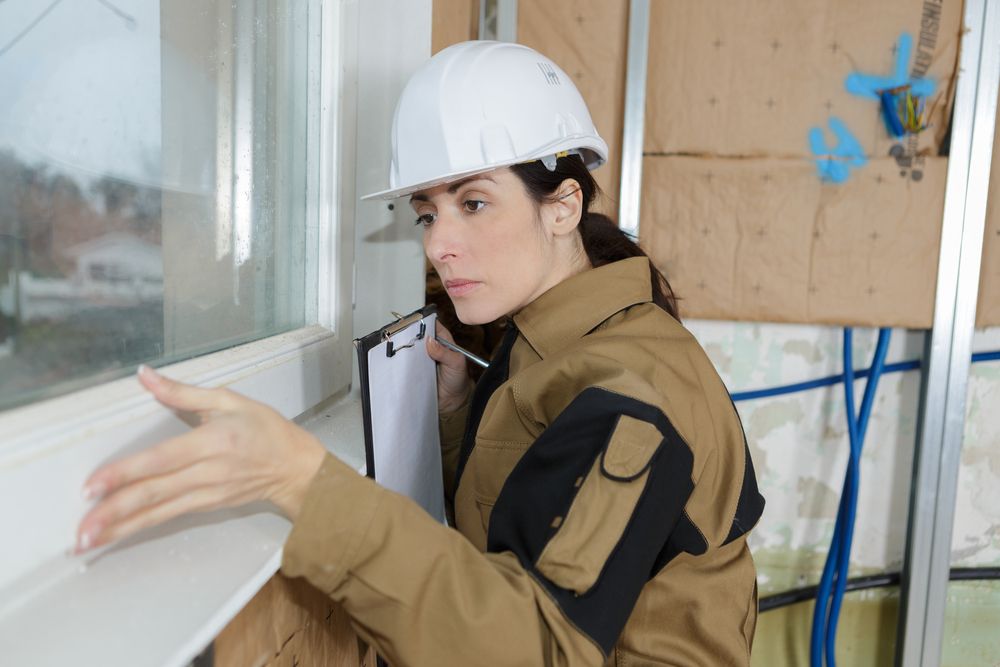
Double-Pane Windows
Double-pane windows, also known as dual-pane windows, come with two panes of glass. These panes are separated from each other by a space filled with air. That air traps winter’s colder temperatures or summer’s heat in between the two windows and forms a barrier that blocks the heat and cold from affecting your home. The energy savings over single pane windows can be as much as 24 percent in cold climates during the winter and 18 percent during the summer in hot climates. That results in lower energy costs and less noise, which can be an important consideration if you live on a busy street.
Double pane window treatments initially cost more than single-pane windows since they use double the materials, but the insulation and strength they offer can make them a much better buy. In fact, with double-pane windows, you won't have to use your air conditioner as often, and your heater can be set at a lower temperature because the air inside your home will be more consistent.
YOU MAY ALSO ENJOY: The Benefits of Dual Pane Windows
What is the average cost of double-pane windows?
The cost will vary based on the model and insulation, but you can expect to pay anywhere between $450 and $600 per double-paned window on a new installation. Replacements can range between $800 and $1,000.
Do double-pane windows really block out noise?
We’ve mentioned that noise blocking is one of the benefits of double-pane windows, and that is true, but there are a few things you should know.
A double-pane window will provide more of a barrier between you and the outside noise (and vice versa), but it’s not soundproof.
The thickness of the glass used in the double-pane windows also matters. The thicker the panes, the more noise insulation you'll get. But you will still hear some sound from outside.
Do double-pane windows show condensation?
You’ve probably seen double-pane windows that show signs of condensation between the panes. This is a sign that the windows are ready for repair or replacement. Normal functioning double-pane windows will not show condensation. This usually happens when a seal between the glass panels has been broken.
So any normally functioning double-pane windows won’t show condensation or mold. You’ll be able to see through the glass as if it were one single pane, but you’ll get to enjoy the added insulation.
Single Pane vs. Double Pane Windows Energy Savings
As mentioned earlier, double pane windows are more energy-efficient than single pane windows. You may still be wondering whether single pane windows are energy efficient at all?
Single pane windows do protect your home from the outside weather to some degree. They just don’t go quite as far as double pane windows do. Compared to single pane windows, double pane windows insulate your home far better. This results in reduced airflow an energy usage.
Therefore, if you're after energy efficiency, which most people are, double pane windows are the way to go. You may pay a little more upfront for the windows themselves, but you'll experience the savings in your energy bill for years to come. The amount you save will vary based on your home size and the windows you choose, but you could end up saving $100 to $400 annually on an electric heating bill.
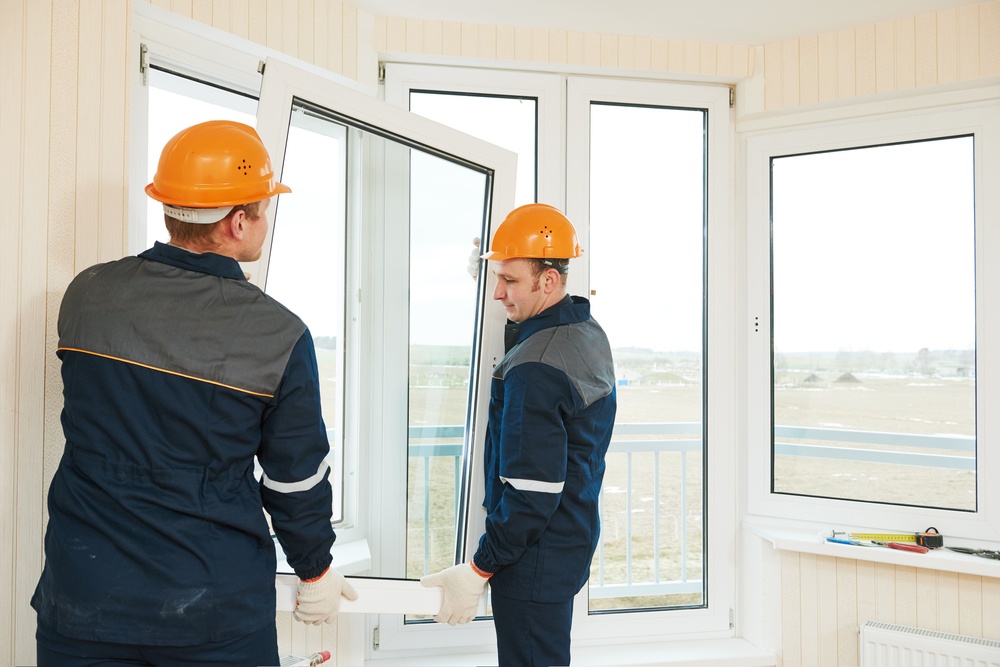
Single Pane vs. Double Pane Windows
Now that we’ve covered the differences between the two, it’s time to decide which window is right for your home.
In most cases, it’ll be the double-pane window. Not only is it the standard today, but it also provides the most insulation, which can save you money on energy bills in the long run.
But if you really need to replace windows and aren’t concerned with energy costs, single-pane windows may suffice.
If you’re trying to decide between the two, give us a call. We can help you determine whether it’s better to replace old double-pane windows with new single pane windows. Or maybe you need help deciding if it makes financial sense to install single-pane windows at all. Once we crunch the numbers, the answer will be clear.
R-Value on Single-Pane vs. Double Pane Windows
If you’re trying to decide between single and double-pane windows, R-value should be on your radar. R-value is a measure of a window’s insulation. A window (or other building material) that has a higher R-value provides better insulation, or better resistance to heat flow.
Regardless of whether you’re buying single or double-pane windows, R-value is important because it can vary from window to window based on the thickness of the glass.
Much like the energy efficiency rating on appliances, the R-value will tell you about the energy efficiency of a window compared with others.
Here’s an example of single vs. double-pane R-values.
Single pane 1/4” thick .90 R-value
Double pane ¼” thick 1.7 R-value
As you can see, there’s a major difference between the R-value of a single pane and double pane window, with all other things being equal.
You’d undoubtedly feel this difference in the room with either window installed.
How to Tell if Your Window is Single Or Double Paned
If you’re replacing windows and trying to figure out what you currently have, don’t worry. It’s fairly easy to tell whether your windows are single or double paned. You may not be able to actually spot the two separate panes of glass (even though they’re there), but there’s a little trick to help you find out whether your windows are double or single paned.
Look to your window’s outside edge. This is where the glass meets the window sash. If you have double paned windows, you’ll notice a metal divider in the center of the window’s outside edges. Single pane windows won’t have this metal divider.
And if you’re still unsure, think about the age of your windows. If they were installed before 1980, they are almost definitely single paned windows.
Can You Replace Single-pane Windows With Double-panes?
You most certainly can replace single paned windows with double paned versions. In fact, it's recommended. The major benefit to knowing your current window type is to be able to anticipate the level of change that your new windows will provide. Going from a single pane to a double pane should result in significant energy savings.
You shouldn’t sacrifice quality for cost. Bad seals, poorly spaced glass, or other defects can negate your energy savings or even allow condensation to form between the panes.
To get the intended energy savings, windows replacement needs to occur on all of your windows at the same time.
Give us a call today to schedule a no-obligation discovery session with one of our window and door experts.
























